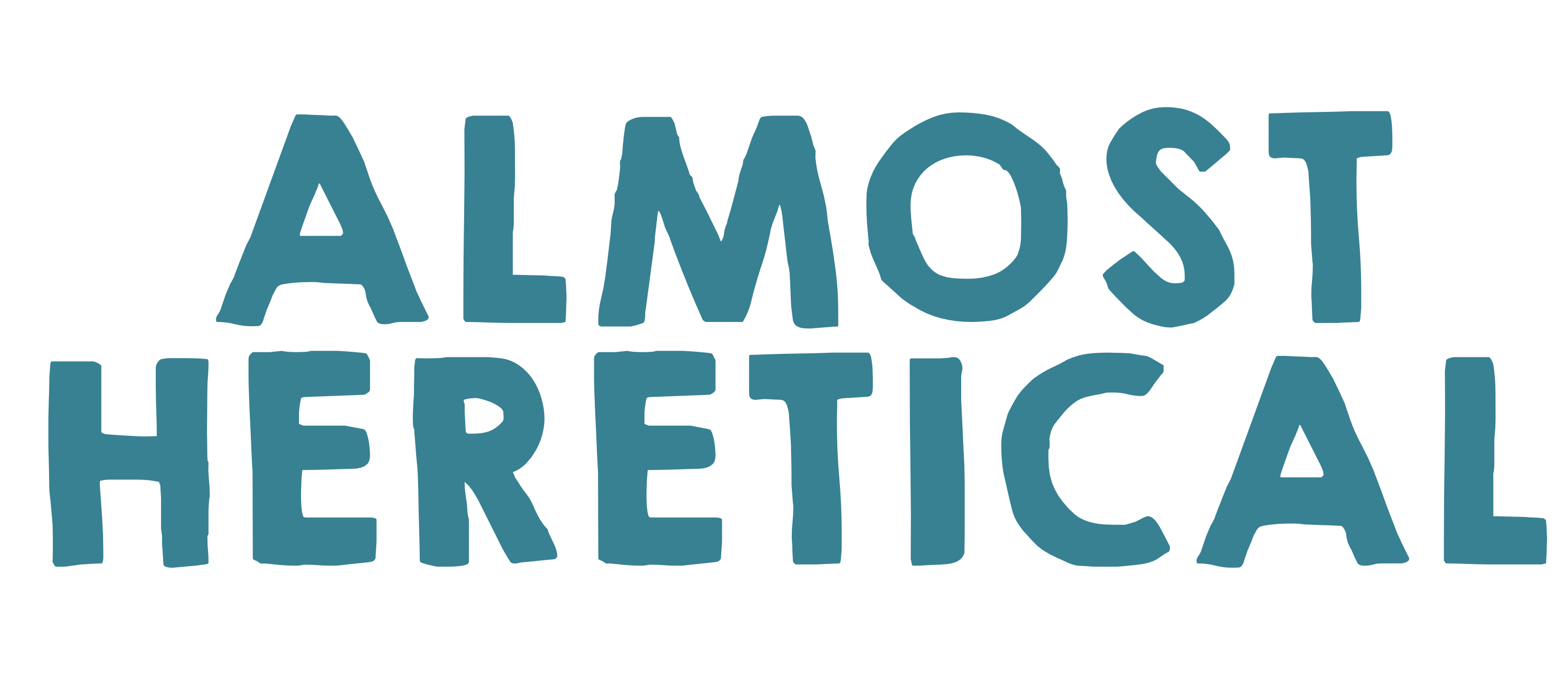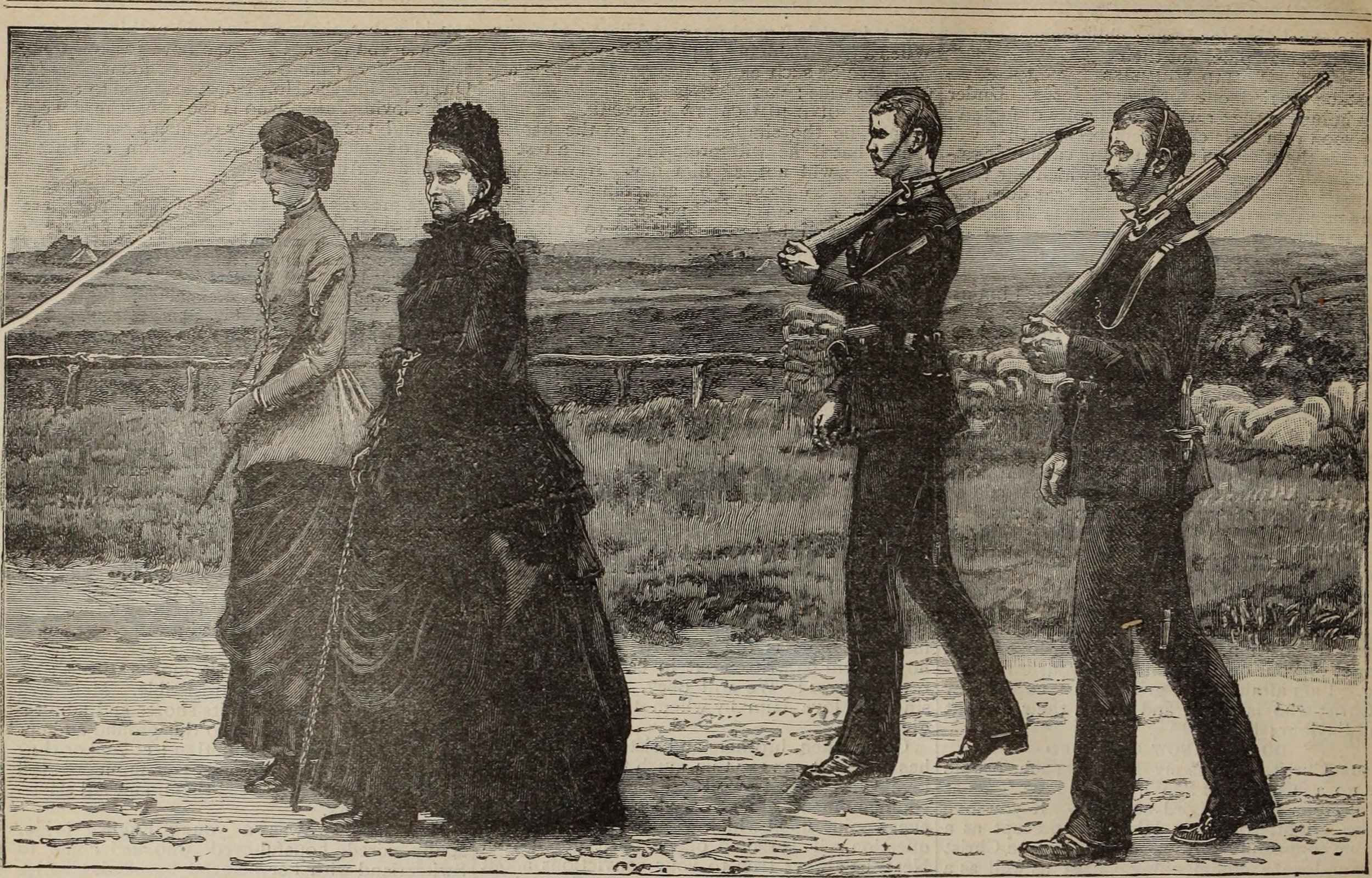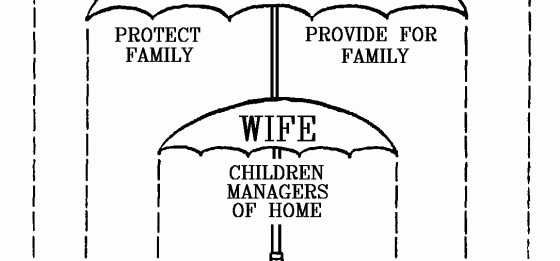Summary
Get ready for some episodes talking about gender. The church has a long history of oppressing and silencing women, and using the Bible and Paul to justify that. We are going to push back on that and show that Paul thought the opposite. Tell your friends, tell you dad, tell your mom.
Transcription
Nate: Alright, welcome to Almost Heretical. We’re back. It’s been a week off, but we are back and we want to talk about something hugely important this week. We often talk about power on this show. We talked about power as it relates to politics; we talked about power as it relates to racist ideas, and we traced it through that topic. And there’s another topic we want to talk about as well, which is gender, gender roles and the church, and the way the Bible is used and Paul specifically is used in talking about gender roles. And we think this is hugely important because the way this topic is talked about, there’s a lot of oppression that goes on. I do think it’s kind of weird, Tim, for two dudes to be talking about this. And so we know that, we know that’s weird. But we do want to have other voices on, we want to have women on and hear their perspective. And in fact, one of the key books we want to talk about and unpack the ideas from in this series we’re going to be doing is by Cynthia Long Westfall and her book called Paul and Gender. And so it’s what we try to do on this show, which, for people who are egalitarian—which, that basically means equal rights for both genders, specifically in the church when people talk about that and in the family. Women can be pastors, women can be elders, women can be whatever men can be. So when we talk about that, I think a lot of people listening to our show are already there, they’re already nodding their heads, they’re like, “Amen, preach!” But often we think, “But the Bible’s not with us on that.” Right? Like, “The Bible is old school patriarchy, that whole thing,” and there’s definitely that in the Bible, but we often say Paul’s not on our team, so we need to move past Paul and move on to where we want to go. And I think we have some really, really good news, because I think there’s scholarship now—people having been digging into this for a while, and Cynthia Long Westfall is one of these people—to show that we don’t have to ditch the Bible here. We don’t have to necessarily ditch Paul here. That this might actually be the thing that really unlocks this and might be our biggest supporter in this whole thing.
Tim: Yeah, so this episode’s just a brief introduction to an upcoming series we’re going to do, and if you want to do some of your own homework, I highly recommend that you go out and get Westfall’s book. It’s on Amazon or a whole bunch of other places. Paul and Gender: Reclaiming the Apostle’s Vision for Men and Women in Christ. We’ll be referencing her work a lot as well as some other scholars. I reached out, asked her, maybe sort of begged her to come on the podcast, so hopefully you hear from her in person soon. We haven’t heard back yet. We’ll put the link to the book in the show notes. So we spent the past couple months mostly having conversations related to race and and racist ideas and the connection with Christianity. I think we need to say up front that and have always been intertwined in the United States. We’ll get into that in some more detail later and hopefully have some guests to flesh that out a little bit more, but there was basically never that wasn’t at the same time interacting with . In essence, there’s never been a differentiation over race or class that hasn’t also been intertwined with differentiation over gender and social status related to gender. And in essence, those are just two ways that power has played out historically, universally, throughout human history. They’re basically multiple ways that people have construed the human family that have elevated different people to different positions of status over other people. So we’ll get into this when we get into some of the passages in the New Testament, but the slave and the master; emperor and those who are ruled by the emperor; parents, children; husbands, wives; men, women. These are all ways of constructing power relationships, or they’re ways of constructing a social expectation about status and control and basically a hierarchy, who is in charge of who. And what we’ll see is there are some really strong similarities in our modern culture with the Greco-Roman culture of the New Testament in terms of who was at the bottom of the ladder, who was at the top of the ladder. But then there are also some aspects of that whole social status hierarchy that are completely different and foreign to us, and so we’ll sort of dig in there and try to flesh things out. But big picture is: anytime we’re talking about people in anyway that might accept or construe some sort of social hierarchy or social ladder where different people are on different playing fields, we are in essence talking about power. That is what is at the very core of this. Who gets power; who doesn’t get power? Who is allowed to have power; who’s not supposed to have power? Who must have power and who must use that power over others; and who can’t get power? And so historically, when you look at gender—this is all summed up in the term patriarchy, or more recently we use the term —men are established as those who have power, and women are among those who have to submit or be under the dominion of men. That’s just a human construct, but where you and I have a bone to pick is the church, especially in the last 1500 years of the western church, has made it appear that Paul and even Jesus is affirming that social hierarchy of male over female. And that’s where we want to go to battle.
Nate: Yeah, and I mean, this is our story, too. This journey is our story as well. We’re not above this; we used to think this, we used to believe this, we used to teach this. We come from complementarian world where the men are at the top and the women are right below that. And sure, you would never talk about it that way, but—although, I remember in Bible college days, the jokes and no push back at all to those jokes, just hearing that around the school. And when you have 90% of the people at the school are men, the way the women are treated—this is very real. Anyways, our thoughts on this started to change I think just with social critique from the city, from the community, from people outside the church: the world. Those worldly ideas started to really carry some weight and really got us to think about this topic and what we think and put pressure on our ideas, because our ideas weren’t working in the world. We talk about that a lot. If our ideas aren’t working in the world, if our ideas aren’t good news to the world, then what’s the point of these ideas? Why are we holding onto these ideas? And a lot of times we would say it’s because that’s what the Bible says and we have to believe it. So that’s what’s so liberating and cool about understanding the Bible differently and having real scholarship, maybe some of the best scholarship, saying something completely different than what we thought. It actually gives, it shifts the power over to the side of the oppressed and the side of the marginalized, and in this case, the side of the women and those who stand with their rights. So that’s what we’re so excited about here.
Tim: Yeah. So like you said, Nate, it is awkward and potentially really problematic for two white men to grab a microphone and have a podcast and talk about gender and specifically talk about , patriarchy, without women representing a voice here. And literally that’s one of the main critiques of the traditional complementarian interpretation of much of the New Testament, is that it’s largely because women have been omitted from Bible interpretation in the Western church and interpretation has been dominated entirely by men that you end up with interpretations that just so happen to position men at the top of the totem pole.
Nate: So basically women weren’t in the room and a bunch of guys were sitting around thinking, “What does 1 Timothy, 2 Timothy, what does that mean?” And of course they assumed it meant this because there were no other voices in the room saying otherwise.
Tim: I mean literally, you guys are probably familiar with the ESV Bible translation. Every contributor, translator for that Bible translation was a man; every single member of the oversight committee was a man; and every single review scholar that worked on the translation was a man. Literally, they did not have one single woman involved in any part of the translation or oversight process. And surprise! The ESV is an explicitly, overtly, intentionally complementarian interpretation of passages. So you can find passages in Genesis 3 all the way through into the New Testament that are specifically changing the English wording from other English translations to make it appear to readers who don’t know the Greek or Hebrew that the only way to interpret these passages is that essentially God has ordained men to be in positions of power over women. Of course, that is not coincidental to the fact that it is only men who were allowed to make those decisions. So the reason I bring that up as an example is not simply to point out that we’ve got a lot of work to do, but it’s to say that if you and I, Nate, are going to sit down and have these conversations on a public platform, much of what our responsibility is is not only to elevate women’s voices and prioritize women’s interpretations—and of course there’s a variety in that, women aren’t a monolith—but it’s also for you and I to do this in a way that is confessional. In the sense of, you and I have both come from the world where we were in positions of authority and had privileges and power that our wives weren’t able to have, that all the women around us weren’t able to have, and you and I were complicit in that system for some time. So this has to also be our confession and sharing how we’ve gotten free, just like when Jonathan Wilson-Hartgrove talks about how he got free of slaveholder religion and essentially tells his story. Some of this will just be our story of how we’ve gotten free. And now what I would say is Westfall’s book, and it just came out literally a year and a half ago, has set a new bar in biblical studies and scholarship that really changes the game and has changed the game, and honestly adds so much more academic weight to the voice of so many women who have been crying for justice and representation and liberation. She’s basically now given the Bible as a tool, given us the Bible as a tool, to undo the same kind of toxic theology that we had perpetuated for so long.
Nate: Alright, so that’s what we’re going to do. This is the intro. Come back for the series where we talk about this stuff and we give the Bible back to you. If you already think these things, if you already think that women are equal and we need their voices in the church and we need them leading churches and leading denominations and all that, this hopefully will give the Bible back to you and you won’t have to move past the Bible, but you’ll actually have that as a tool to use in this defense and in this movement. And if you’re not there and you are where we’re talking about, where we’ve come from, and that world that we know very well, first of all, we understand where you’re coming from, and we hope that you’ll come along on this journey and with an open mind be in a position to have your heart and your mind changed. We’re really excited about this, and if this triggered any thoughts, questions, or even just thinking ahead of what this series is going to be about, you have some things to say, you know someone we should talk to, send us an email contact@almostheretical.com. We’d love to hear from you. Anything else to say, Tim?
Tim: No. But for once I’m feeling kind of optimistic.
Nate: Yeah, I feel kind of optimistic, too. I just won’t get on Twitter tonight, I guess. Alright, we’ll see you next week.
Tim: Peace. Oh yeah, and one more thing, especially to our women listeners, we would love to hear your stories. The good, bad, and the ugly of expectations around gender in the church or even broader Christian culture, what you were allowed to do or weren’t allowed to do, or even how that language, “allowed to do,” makes you feel. We would just love to know where you’re at and would love to hear your story and possibly share your story in a future episode. What’s the—should they email us? Or—
Nate: They can still, yeah, just email us. contact@almostheretical.com, and you just share what you want to say, and we might get in touch and try to get an audio recording or something like that. Just email us, contact@almostheretical.com. Did I say it enough? I think I just said three or four times, so if you don’t know the email now, it’s not my fault.
Tim: You just got yourself three nickels.
Nate: [laughing] Alright now we’ll see you next week. You have to say, “Peace,” again.
Tim: Peace. Again. [laughing]











